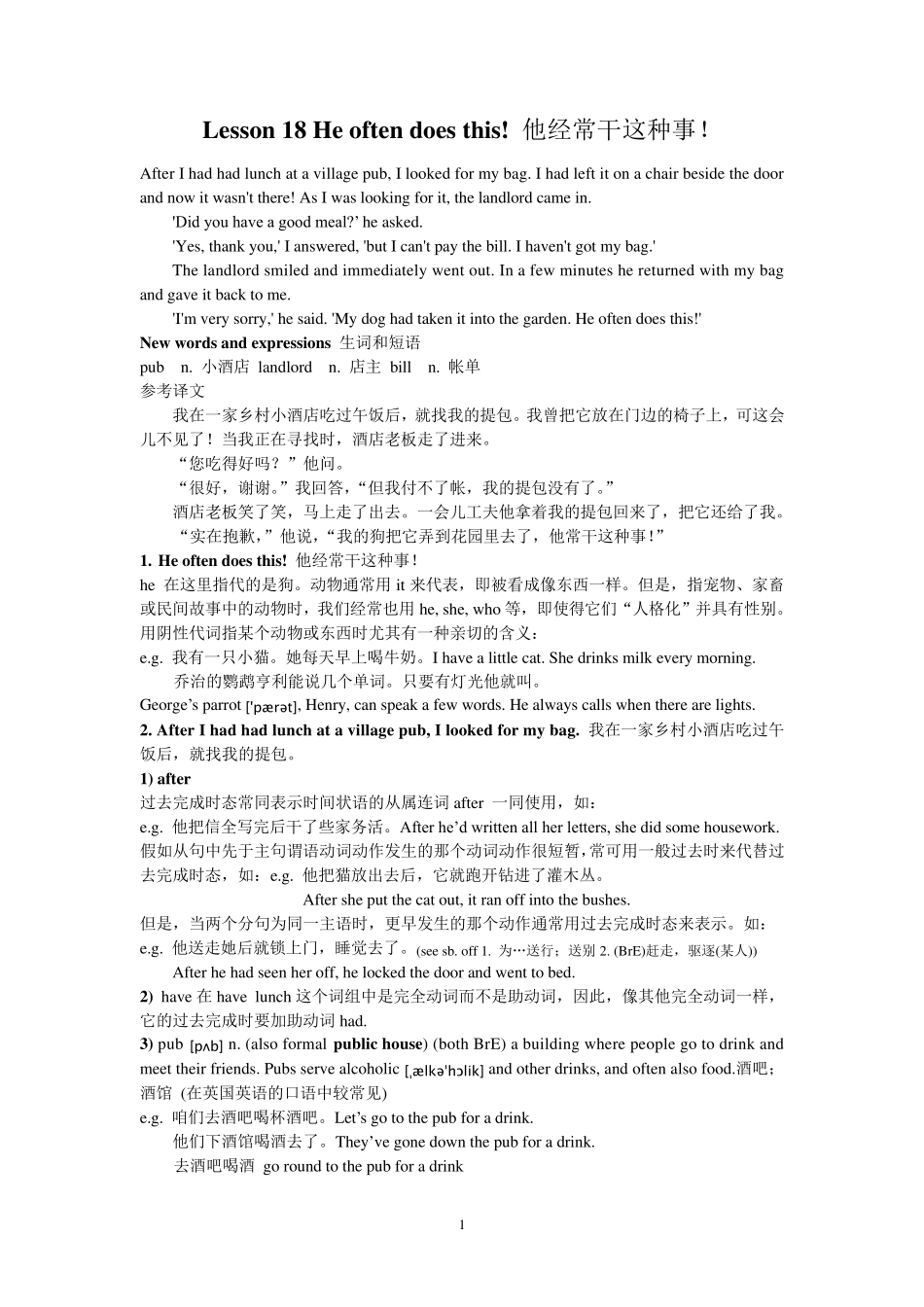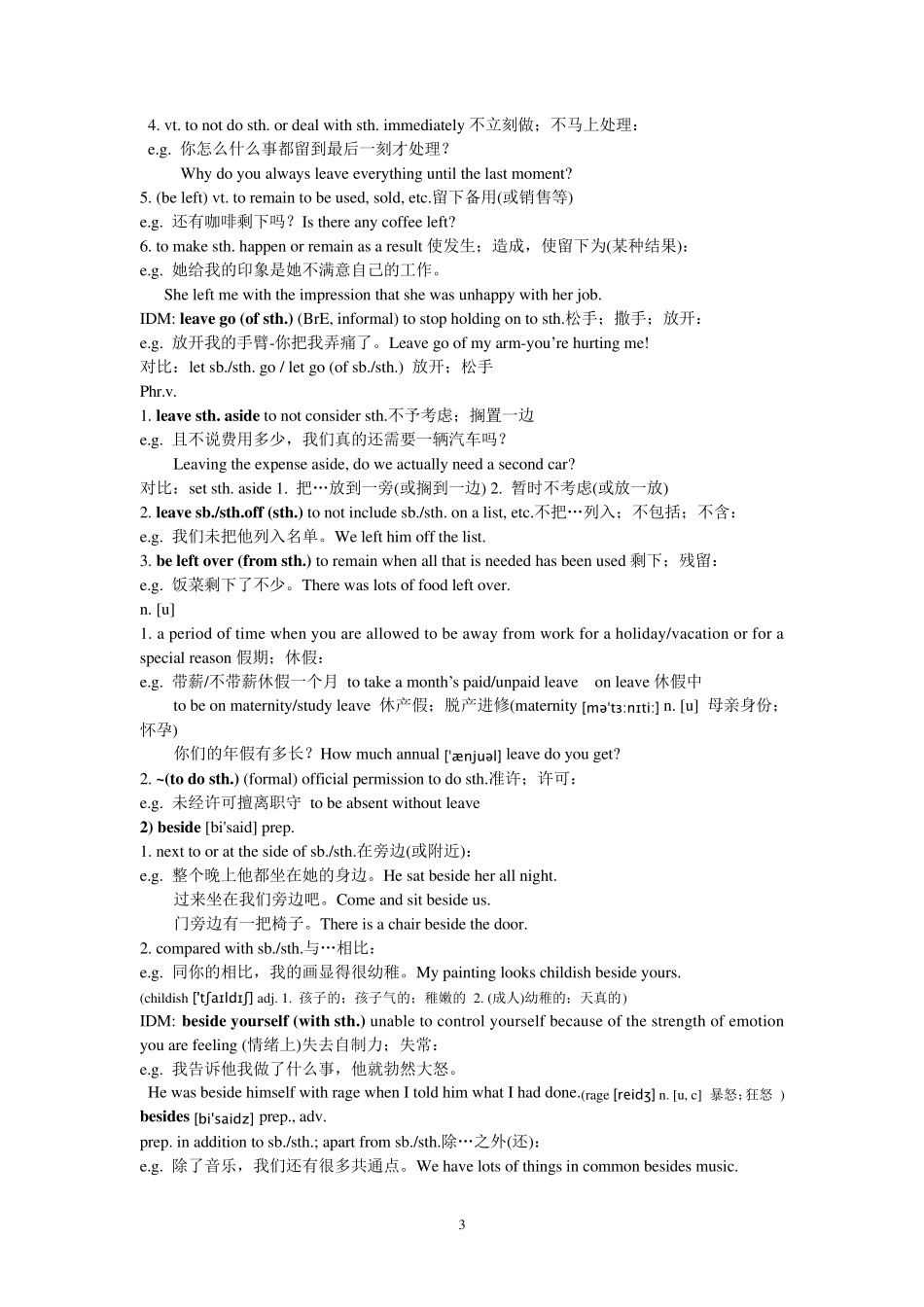1 Lesson 18 He often does this! 他经常干这种事! After I had had lunch at a village pub, I looked for my bag. I had left it on a chair beside the door and now it wasn't there! As I was looking for it, the landlord came in. 'Did you have a good meal?’ he asked. 'Yes, thank you,' I answered, 'but I can't pay the bill. I haven't got my bag.' The landlord smiled and immediately went out. In a few minutes he returned with my bag and gave it back to me. 'I'm very sorry,' he said. 'My dog had taken it into the garden. He often does this!' New words and expressions 生词和短语 pub n. 小酒店 landlord n. 店主 bill n. 帐单 参考译文 我在一家乡村小酒店吃过午饭后,就找我的提包。我曾把它放在门边的椅子上,可这会儿不见了!当我正在寻找时,酒店老板走了进来。 “您吃得好吗?”他问。 “很好,谢谢。”我回答,“但我付不了帐,我的提包没有了。” 酒店老板笑了笑,马上走了出去。一会儿工夫他拿着我的提包回来了,把它还给了我。 “实在抱歉,”他说,“我的狗把它弄到花园里去了,他常干这种事!” 1. He often does this! 他经常干这种事! he 在这里指代的是狗。动物通常用 it 来代表,即被看成像东西一样。但是,指宠物、家畜或民间故事中的动物时,我们经常也用 he, she, who 等,即使得它们“人格化”并具有性别。用阴性代词指某个动物或东西时尤其有一种亲切的含义: e.g. 我有一只小猫。她每天早上喝牛奶。I have a little cat. She drinks milk every morning. 乔治的鹦鹉亨利能说几个单词。只要有灯光他就叫。 George’s parrot ['pærət], Henry, can speak a few words. He always calls when there are lights. 2. After I had had lunch at a village pub, I looked for my bag. 我在一家乡村小酒店吃过午饭后,就找我的提包。 1) after 过去完成时态常同表示时间状语的从属连词after 一同使用,如: e.g. 他把信全写完后干了些家务活。After he’d written all her letters, she did some housework. 假如从句中先于主句谓语动词动作发生的那个动词动作很短暂,常...


